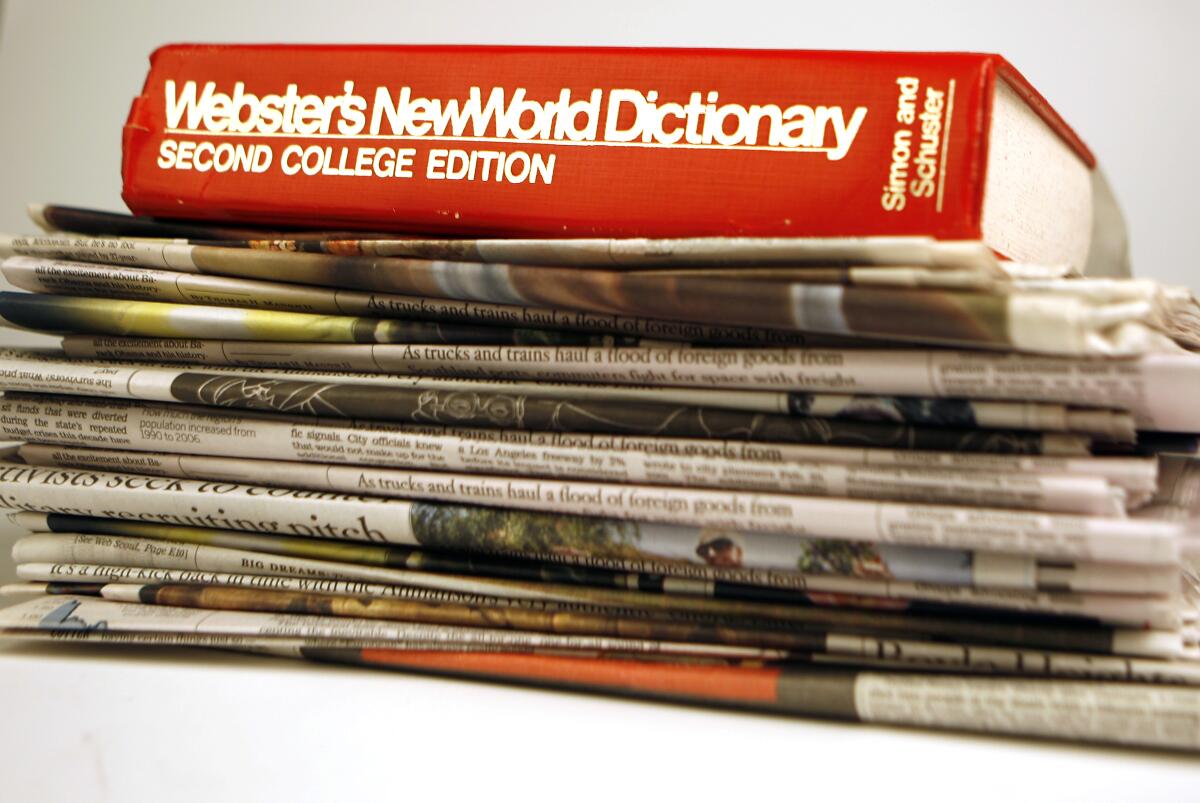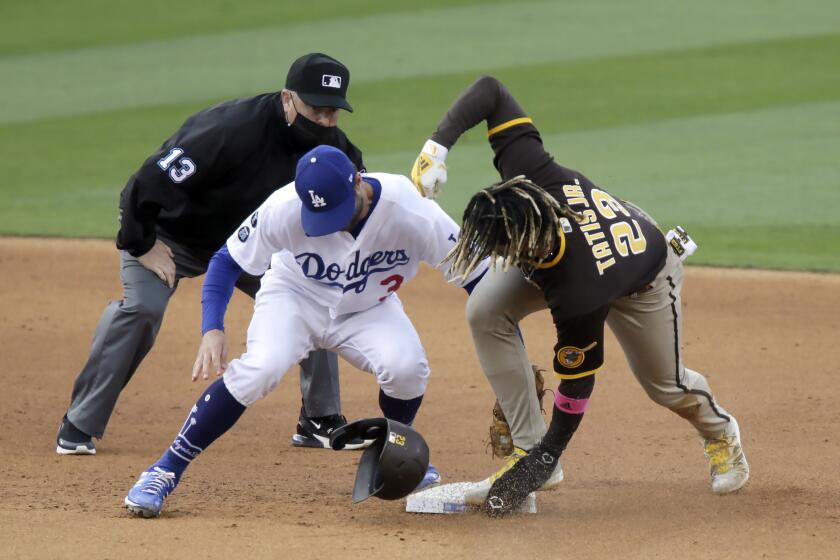A Word, Please: A superlative comparison of ‘clearer’ and ‘more clear’

- Share via
“When is it grammatically correct to use ‘more clear’ in place of ‘clearer’?” an internet user asked on Quora last year.
There are some problems with this question. The first is that the writer was under the impression that “more clear” is the grammatically correct wording in some contexts, while “clearer” is correct in others.
Second: The writer posted this question in a public forum, where people who don’t know the answer can pretend that they do and where, as a result, people contradict each other with absolute certainty.
“‘More clear’ is not English,” one user replied. “The expression is ‘clearer.’”
“The use of either one is grammatically correct,” said another.
No one teaches us in school where to turn with questions like this. Even I found this matter tough to research. So you can’t blame the questioner for seeking out help on the internet, where you can get good answers and bad answers, with no way to know which are right, served with a generous helping of spam ads for stock market tips and software products.
So what’s a well-meaning English speaker to do?
First, toss out the idea that there’s only one correct way to write or say something. English is pretty flexible, so more than one wording can be grammatical. Think about “aren’t I” and “amn’t I” and you’ll see what I mean.
Second, understand where correctness comes from in English. There’s no Grammar Penal Code — no official list of what’s right and wrong. Instead, there are three elements that determine correctness: syntax, dictionary definitions and common usage.
Both of the prefixes have multiple definitions, and sometimes the distinction between them is difficult to parse.
Syntax means the grammatical mechanics of sentences, for example how subjects should agree with verbs. You don’t say, “We knows how,” you say, “We know how.” “Know” is the correct conjugation for the first person plural, so “knows” is ungrammatical when paired with “we.”
Dictionary definitions are more straightforward. If you say “dog” when you mean “cat,” you’re using the word “dog” wrong.
The third arbiter of correctness in English, common usage, tells you whether a structure is so well established that it’s considered idiomatic — correct despite being ungrammatical. “Aren’t I” is the best example. The pronoun “I” usually pairs up with “am,” not “are.” But at some point, “aren’t I” became standard idiom, so it’s correct even though it’s ungrammatical.
So how does all this apply to the choice between “more clear” and “clearer”?
The idiom standard does not, in my opinion, seem to apply. I would argue “more clear” isn’t common enough to be idiomatic, though reasonable people may disagree.
Grammar is helpful here because it tells us that, for some adjectives, you can add “er” on the end to get its comparative form and “est” to get a superlative. So we know that “clearer” is standard and correct.
But to really understand comparatives and superlatives, the dictionary is our most useful tool. First, it can show us which words have comparative forms and which don’t. Look up “clearer” and “intelligenter” and you’ll see what I mean. “Clearer” is in the dictionary. “Intelligenter” is not. So if you want to say that one person’s intelligence is greater than someone else’s, you have to piece together your own wording, for example: “more intelligent.”
So we know that the dictionary considers “clearer” correct, but does that mean “more clear” is not? For this answer, we have to closely examine the word “more.” Nowhere in any dictionary does it say that you can’t add the word “more” to adjectives that already have a comparative form. “More” means “more,” whether it comes before “intelligent,” “clear” or any other adjective.
So both “clearer” and “more clear” are grammatically correct. But if you’re minding your usage, you might want to avoid “more clear” anyway. According to Google’s Ngram viewer, “clearer” is about 12 times more common in published writing than “more clear.” Plus, though everyone knows “clearer” is right, some don’t know “more clear” is too, and they’ll think you’re in the wrong if you use it.
June Casagrande is the author of “The Joy of Syntax: A Simple Guide to All the Grammar You Know You Should Know.” She can be reached at JuneTCN@aol.com.
All the latest on Orange County from Orange County.
Get our free TimesOC newsletter.
You may occasionally receive promotional content from the Daily Pilot.







